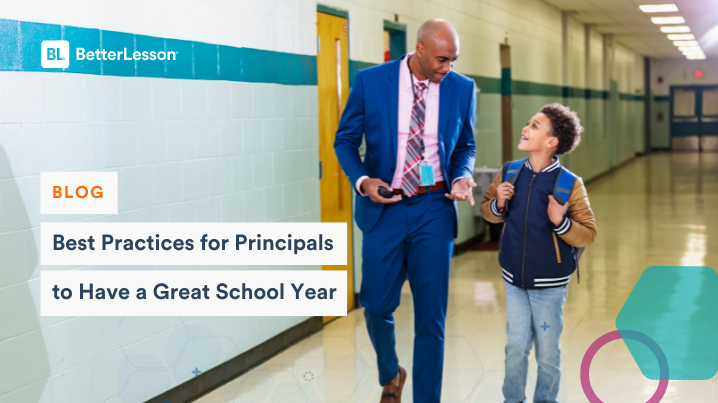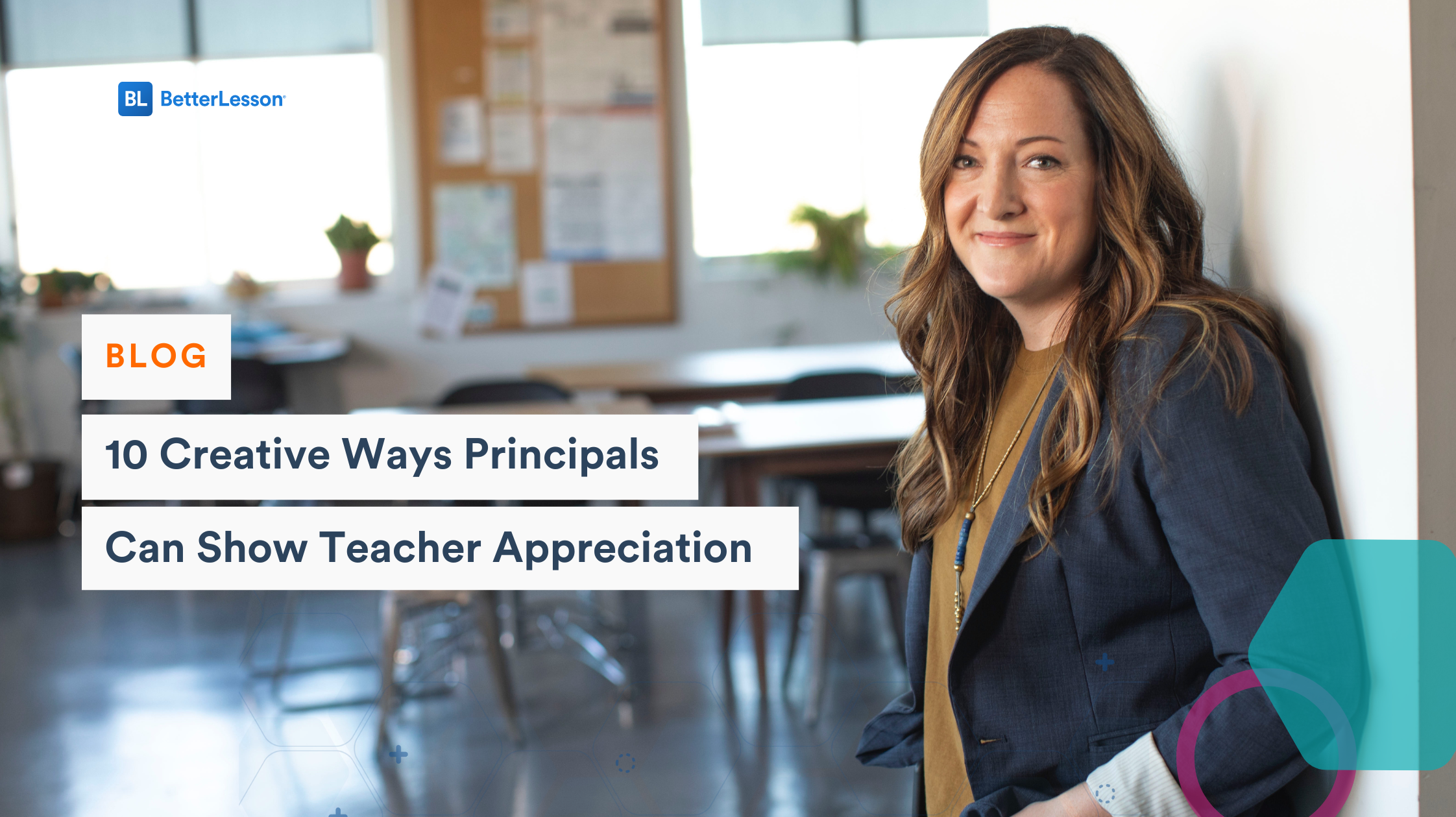The start of the school year often brings with it a fresh sense of optimism: teachers are recharged after a much-deserved break, students are eager to reconnect with friends, and school leaders are eager to support existing or launch new initiatives. There is a distinct sense of possibilities.
Principals have a unique opportunity at the start of each school year to establish structures, priorities, and values that can sustain that optimism and energy throughout the school year. While this list could be endless, here are some key considerations and actionable ideas that can be implemented year-round to support a successful school year.
Maintain Accessible and Clear Communication
Schools are complicated systems with layers of decision-makers and leaders. Because of this, communication across stakeholders can easily become lost and inaccessible. It’s no surprise then that lack of communication is a key concern among teachers and staff.
Here are a few simple approaches to establishing consistent opportunities for communication:
- Recurring office hours: Sometimes a lack of communication occurs simply because there is no clear space for it. Principals can host recurring (weekly, biweekly, monthly, etc.) office hours that serve as a low-stakes drop-in space for teachers and staff to ask questions, share concerns, or simply check-in. Having this consistent opportunity for communication can be critical in making sure teachers feel heard and supported.
- Newsletters: There are so many moving parts within a school system: curriculum, after-school clubs and sports, school-sponsored events, tests, projects, and more. One way to help teachers feel grounded in all of this is to send out a recurring newsletter. This newsletter might include important upcoming dates (i.e. parent-teacher conferences, staff meetings), announcements (i.e. welcoming a new staff member), shout-outs (i.e. sharing a teacher’s successful project), and more. Newsletters are a great way to connect teachers with everything happening across the school.
- Q&A during staff meetings: There is often so much to cover in staff meetings that the agendas can be packed. However, this can lead to teachers having unasked questions or unheard concerns. One way to address this is to add a 10-15 minute block at the end of each staff meeting for open Q&As. This way, you have a structure build-in to staff meetings where critical communication can occur.
Create Opportunities for Parent and Community Engagement
Research is clear that parent/caretaker involvement in education has significant academic and social-emotional benefits to students. While parent-teacher conferences are a great tool for engaging families, they aren’t enough on their own to establish a robust culture of family involvement and communication.
Here are some ways to cultivate and promote family engagement in your school:
- Family & community events: Hosting family and community events can be a powerful way to engage parents/caretakers, build bridges between teachers and families, and establish connections between schools and communities. This might include academic-focused events, like science fairs, literacy nights, or art exhibits, where students and families can participate in engaging learning opportunities together. This could also be relationship-building events, like game nights, picnics, or cultural fairs. These types of events are also great ways to create relationships with community businesses, restaurants, or organizations.
- Parent/caretaker newsletters: Just like with teachers and staff, a recurring newsletter for parents/caretakers is a great way to foster engagement and communication. Newsletters can be sent digitally and physically, to ensure accessibility. Information might include upcoming school events (i.e. parent-teacher conference, family nights, field trips, etc.), upcoming school calendar announcements (i.e. scheduled days off school), classroom shoutouts, and more. Newsletters can be a powerful tool for parents and caretakers to feel connected to their child(ren)’s learning.
- Workshops & seminars: Hosting workshops and seminars that are relevant to parent and community needs (i.e. financial literacy, technology and digital media literacy, know-your-rights, health drives, etc.) can be a great way to connect with families and to create schools that are centerpieces to communities. These workshops can often be facilitated in partnership with community organizations or government agencies.
Important considerations: Sometimes, schools can be intimidating places for families. Take some time to make sure that your school environment is accessible and welcoming to all families. This might include ensuring that signs and materials are translated into the home-languages of families and that translation services are available; offering flexible times for events and meetings that can accommodate work schedules; or utilizing assistive technologies to meet any needs of family members with disabilities.
Support Student-Centered Learning
Student engagement is a critical issue in schools. Students often and understandably feel disengaged and voiceless in their education. Principals can take and promote specific actions to created a student-centered learning environment:
- Project-based learning: Supporting teachers in utilizing project-based learning is an evidence-based approach to student-centered learning. These projects are also great ways to engage students in community- and real-life learning.
- Student leadership: Students deserve, and can learn and grow tremendously from, opportunities for leadership within their own education. At the classroom level, this might look like encouraging teachers to allow students to participate in creating classroom norms, facilitating discussions, or identifying topics for learning. At the school level, this might look like creating a student advisory council or even advocating for a student-representative position for your district’s school board. Whatever it looks like at your school, authentic student engagement in school can be truly transformative.
Celebrate Teachers
Celebrating teachers shouldn’t only occur during teacher appreciation week or at the end of the school year. Instead, principals can create a culture of celebration year round, starting on day one of the school year. This helps to create a positive, affirming, and supportive school culture. There are so many ways that principals can celebrate progress and achievements. Here are a few ideas:
- Staff shout-outs: Whether it’s at the start of each staff meeting, a bulletin board on public display, during announcements, or within your newsletter, creating a time or space for staff shout-outs promotes an environment of support and care.
- Teacher of the month: Announcing a teacher-of-the-month can be a fun way to celebrate your educators. These announcements can come with fanfare and include specific reasons to celebrate the particular teacher. Awardees might receive some sort of trophy or medal. There could be acceptance speeches. Have fun with it!
- Random acts of kindness: Celebrations don’t always have to be scheduled. Sometimes, leaving a surprise sticky note on a teacher’s desk with a specific praise or providing staff breakfast on a random Wednesday is an encouraging way to celebrate teachers and boost morale.
Provide Meaningful Professional Support
Our final suggestion for a successful school year is to be intentional and strategic with professional development. Teachers want to feel professionally supported and invested in, and students deserve teachers whose instructional skills are continually sharpened. Professional support can take many forms: mentor programs, instructional coaching, on-demand courses, or workshops. Aligning professional support with both school goals/initiatives and teacher needs is how schools begin to deeply impact students’ academic and social-emotional learning.
We understand that internal capacity is often a barrier to providing comprehensive professional support. BetterLesson’s offerings can be personalized to any school district’s goals or needs, and we provide a wide range of professional supports:
Wherever you place your energies into having a great school year–school culture, curriculum, leadership, or otherwise, BetterLesson is here to provide personalized and evidence-based support. Schedule a call with us today to learn more about how we can work together to make sure every school year is a success!
Get in Touch







